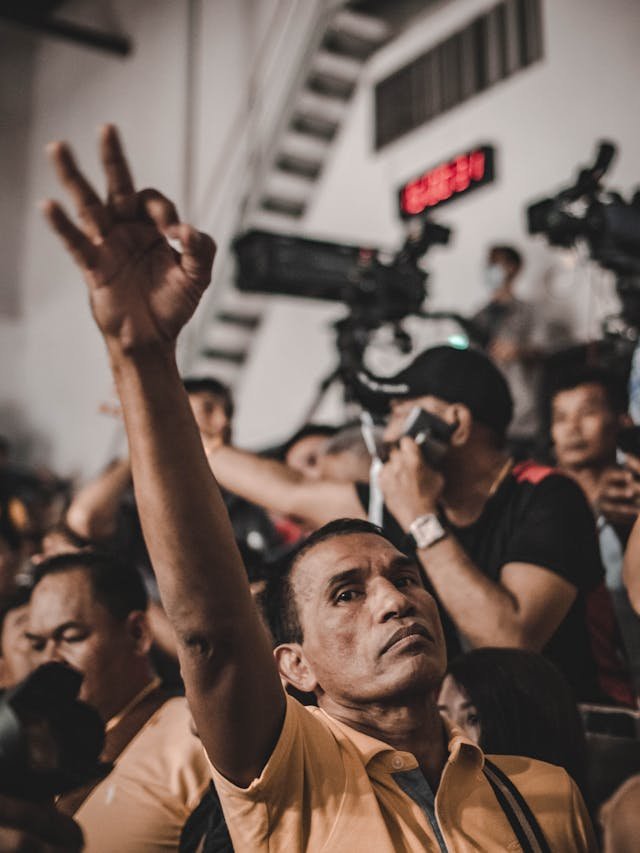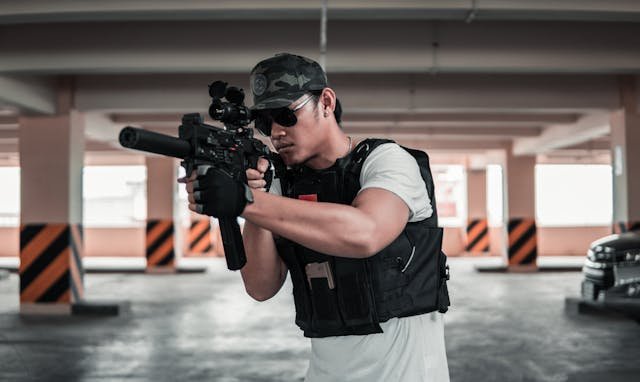SINGAPORE – In an unsettling declaration of unity, 10 Southeast Asian nations, joined by China, Hong Kong, and Bangladesh, the “10+3 Group” — comprising 10 Southeast Asian nations along with China, Hong Kong, and Bangladesh — issued a joint statement this week demanding that the global population produce more journalists. Their reasoning? To meet the booming economic demand for persecuting, harassing, and oppressing media professionals.
“The combined nations of Thailand, Burma, Laos, Cambodia, Vietnam, the Philippines, Malaysia, Indonesia, Brunei, Singapore, as well as China, Hong Kong, and Bangladesh call upon the world to produce more journalists,” the statement began, “because our economies are now heavily reliant on unjustly oppressing them. Destroying the human spirit’s desire to get the truth out at all costs is a highly lucrative market with expansive room for growth in the 21st century.”

Ranked Oppression Champions
The 10+3 Group, whose members dominate the lower rungs of the World Press Freedom Index, is united not only in geographic proximity but in its shared desire to silence dissent. The report revealed Asian nations are trailblazers in the creative suppression of free expression. Rankings included:
- Bangladesh (#165): “Why harass one when you can smear the whole newsroom?”
- China (#172): “Because nobody does surveillance and repression better.”
- Vietnam (#174): “Abductions are an art form.”
While none managed to dethrone Afghanistan (#178) as the world’s least free nation (not even North Korea at #177), the group remained optimistic about the potential for “unparalleled innovation in brutality.”
Emily Chao, spokesperson for the 10+3 Group, elaborated on the exciting financial prospects of their journalist-persecution economies during a press conference attended by currently unincarcerated reporters. “The journalist oppression sector now employs thousands of creative professionals, including content scrubbers, black-bag transport consultants, and interrogators. Without journalists, many of these skilled workers would lose their livelihoods.”
She continued, “For example, sales of high-tech surveillance drones, enhanced interrogation tools, and nondescript black vans have skyrocketed, creating jobs in everything from production lines to grave digging.”
Small Businesses Thriving
Asked for further clarification on the economic benefits of crushing press freedom, Ms. Chao listed what she called the innumerable advantages to a region-wide set of fast and loose policies encouraging the extrajudicial killing of journalists, correspondents, reporters, columnists, and stringers, whether on domestic soil, or abroad. She also noted the various boutique companies that have popped-up to deal with the unique threats posed by someone with a digital voice recorder and an email address.
Local SMEs (Small and Medium Enterprises) have seen a windfall, with the sales of normal everyday items keeping mom-and-pop shops throughout the region afloat, even during times of recession. Large purchases of rope, zip ties, hoods, blindfolds, hammers, portable electric saws, chicken wire, dry cement, knives, fish netting, and even sanitary wipes have brought wealth to even tiny, remote villages where journalists have been known to hide out.
Start-ups specialising in digital disinformation campaigns and troll farm management are seeing unprecedented growth. While Lazada and Shopee are reportedly offering discounts on bulk orders of “press-suppression kits,” featuring noise-cancelling headphones (for the interrogators) and 2-in-1 polygraph machines with built-in electroshock clips.

Chao highlighted how ordinary citizens also benefit: “Even village children can realize their dream of becoming torture artisans or intimidation specialists.”
Cross-Border Collaboration
The 10+3 Group also announced plans for Seamless Repression Agreements, allowing countries to share resources and collaborate on cross-border journalist persecution. “Why stop at harassing our own reporters when a pan-region of repression is possible?” Chao mused.
Under the agreement, right-wing paramilitary squads would be permitted to cross international boundaries without going through the proper immigration channels–just to cut down on red tape. “And believe us, all of our tape is red.”
Vietnam was praised for its efficient journalist-abduction services, while Cambodia expressed gratitude for Thailand’s willingness to “look the other way” during extradition operations.

Sustainability Crisis Looms
Despite the boom, experts warned that if current trends continue, Southeast Asia risks running out of journalists by 2029. “There’s a very real danger that we’re persecuting too efficiently,” Chao admitted. “Without enough dissenters, how will we sustain this lucrative industry?”
Eight-hundred journalists have been killed worldwide in the last ten years. Many more have been violently harassed, verbally threatened, or forced to endure years of battling complex and arbitrary legal systems.
A Broader Appeal
Another 83 nations eagerly signalled interest in joining future initiatives. A Saudi Arabian representative reportedly stormed the press briefing, indignant over being excluded. “Seriously, you guys didn’t even call us? We choked out a living, breathing journalist–an American, I might add–injected him with a blood coagulant, cut up his body with electric saws, and disposed of the remains without lasting consequences to anyone of importance. His body was never found, and neither the then-current U.S. President nor Bezos did anything about it. We did all that, and we didn’t even get an invitation? You’re all a bunch of amateurs.”
Ms. Chao disputed the assertion that any of the Asian countries that co-hosted the briefing were inexperienced when it came to killing journalists. She went on to quickly clarify that the omission was “purely an oversight” and promised the next repression summit would include “every nation doing its part to crush free speech.”
At press time, all the journalists in attendance at the press conference had been found guilty on fabricated charges, and thrown into the deepest, darkest prison cells available.
The 10+3 Group promised to “maximise their economic value” through groundbreaking forced labour initiatives.


